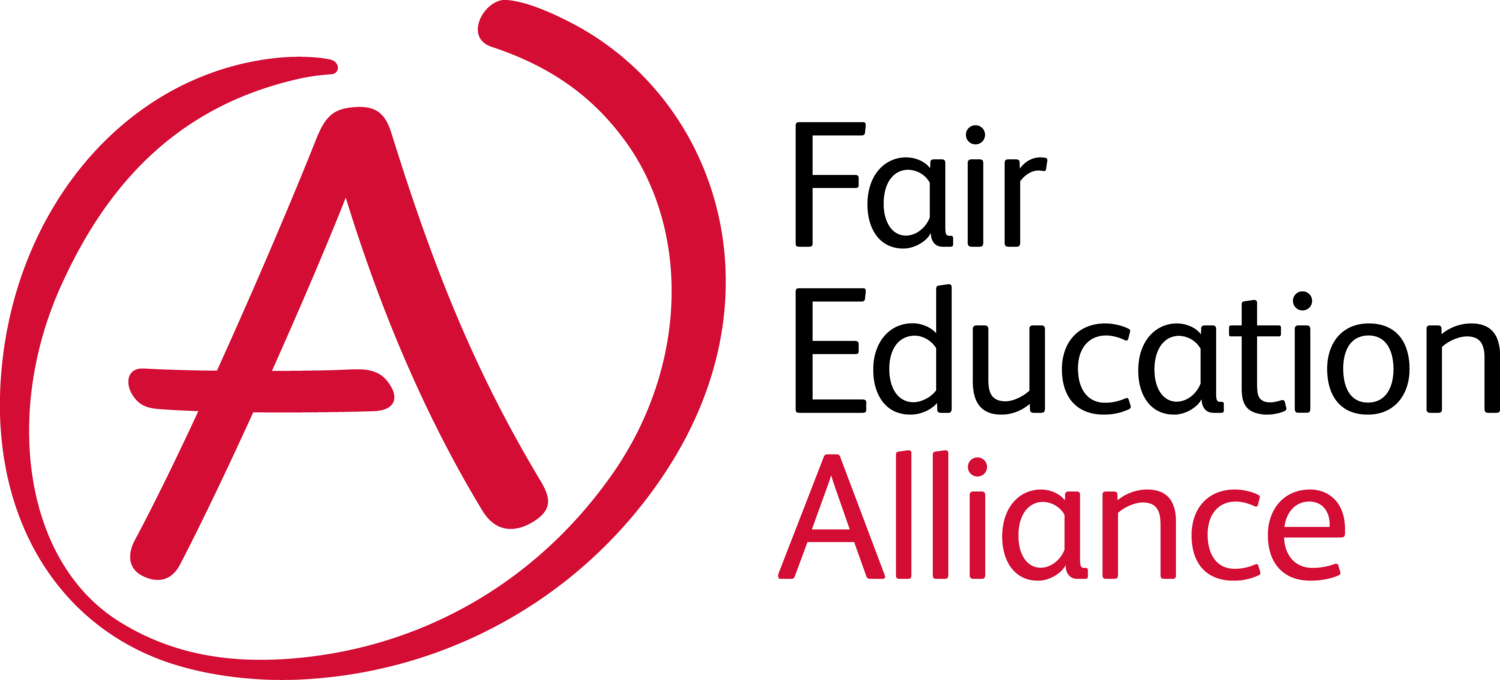We are calling for a fairer education system for ALL.
The Fair Education Alliance is a network of over 200 organisations from business, the third sector and education.
We are committed to tackling inequality in education through collective action, policy and influencing and scaling impact. To make education fairer we need a different kind of education system. An education system that:
That is why we created a series of documents that include information about:
Why these things will make a difference to tackling inequalities.
Demonstrate how we can do this through case studies, frameworks and resources that have already been used for young people across the country.
All of this information is drawn from the experience, evidence and expertise of our over 200 Fair Education Alliance Member organisations.
In the 2019 FEA Manifesto we called for precisely this, highlighting the priorities originally set out in our 2018 Report Card.
The alliance wants an education system that:
Has a shared language and framework for building essential skills in schools.
Uses whole school approaches to wellbeing.
Supports teachers and leaders, particularly in the most disadvantaged areas.
Encourages engagement of parents and communities in education.
Enables all young people to access the Post-16 and
Post-18 destinations that are right for them.
We are calling for an education system that has a shared language and framework for building essential skills in schools.
Building essential skills supports learning and progress in education and employability beyond it.
For all children to thrive, building these skills need to be explicitly embedded into the National Curriculum.
This needs to be reinforced through opportunities and support beyond the classroom, including youth social action.
The Fair Education Alliance is backing the Skills Builder Framework. The consistent language and shared outcomes underpin this work.
2. We are calling for an education system that uses whole school approaches to wellbeing.
There is a clear correlation between wellbeing and learning readiness. The higher a student’s wellbeing, the more they will thrive in education.
For all children to benefit long term, sustained, whole-school approaches need to be implemented.
Both children and adults thrive and learn best in a supportive, nurturing environment. This is therefore closely connected with teacher retention issues, and the need to create a space for transformative leadership.
A whole school approach also includes parents/carers and families, creating supportive, emotionally healthy relationships between home and school.
3. We are calling for investment in the ongoing professional development of educators throughout their careers, so that we can nurture world-class teachers and leaders.
Teachers are leaving the profession as quickly as they are joining it, but we’re not acting effectively enough to address this.
Reduction in teachers is particularly acute in schools in challenging contexts. Often these schools serve children from disadvantaged backgrounds.
The reasons that so many teachers leaving the profession are clear: high levels of stress, low job satisfaction and poor wellbeing.
Evidence shows that high-quality professional development is an important factor in making teachers more effective in their roles - in turn increasing their job satisfaction and overall sense of wellbeing.
Crucially, continued personal development empowers teachers to deliver a better education for their pupils, which has a significant impact on the outcomes of disadvantaged pupils.
4. We are calling for a better way of engaging parents and communities to ensure that education doesn’t stop at the school gates
Evidence shows that when parents are engaged in their child’s education, they do better at school.
One of the biggest challenge’s schools face is the lack of evidence around effective strategies schools can use to meaningfully engage parents in their children’s learning.
Schools are also struggling to reach the parents that they most want to and when they do, they are unable to evidence the engagement that is happening.
5. We are calling for an education system that enables all young people to access the Post-16 and Post-18 destinations that are right for them.
There is currently no easy way for young people, parents and teachers can navigate information, advice and guidance around Post-16 and Post-18 destinations, particularly for those who do not pass Level 1 or Level 2 qualifications in Maths and English.
There is also a gap in continued support at an institutional level for young people transitioning from Pre-16 to Post-16 and then onto Post-18.
Rationale, case studies, resources and frameworks to be shared soon.
With special thanks to our project leads, Achievement for All, Ambition Institute, Family Links, Learning with Parents, National Literacy Trust, Skills Builder, Step up To Serve, UBS , Voice 21 and Whole Education.



